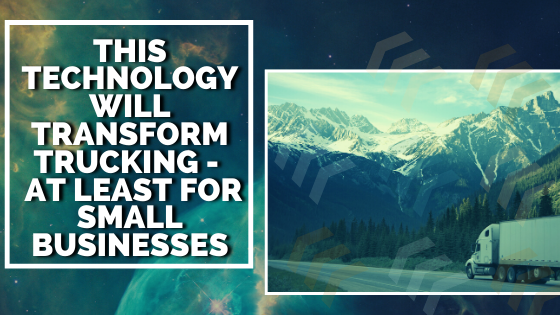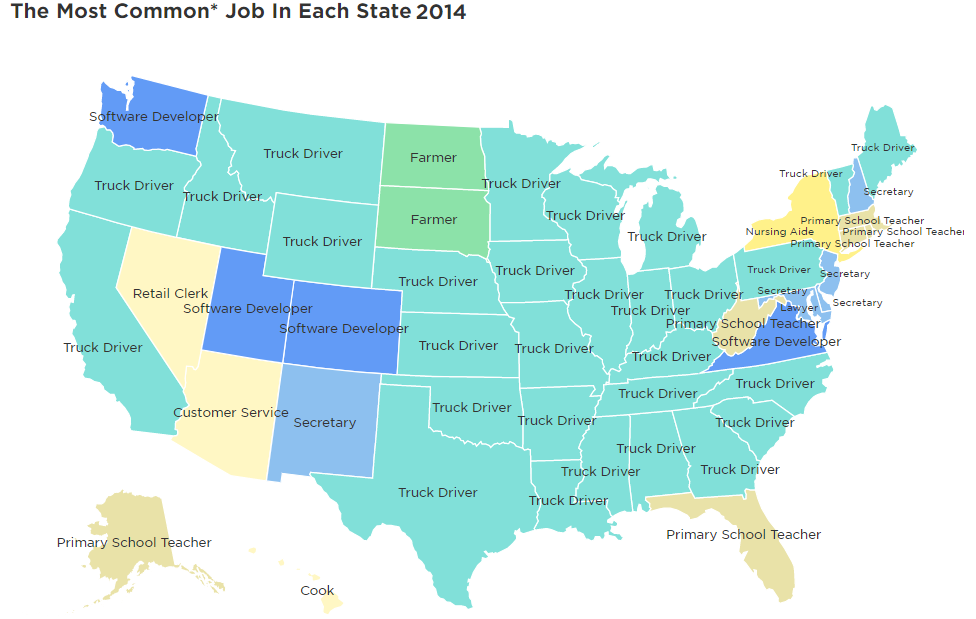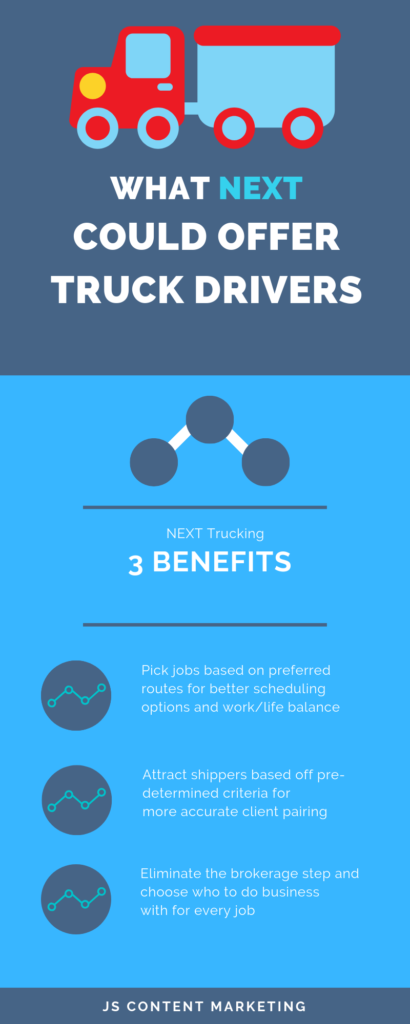This Technology Will Transform Trucking – at Least for Small Businesses

(~800w, 1st Person, Formal/Informative/Promotional)
Maybe it’s just the nature of the job, but trucking has a reputation for being old school.
Classic? Yes. Antiquated? No. The truck driving industry is embracing new technologies more than ever before, and the best ones rarely make the headlines.
Whenever we talk about modernizing the truck driving industry, some technologies immediately spring to mind.
The first is often automation. Sure, driverless vehicles are promising (or unnerving, for some) but there are other technologies changing trucking – but mores so in a traditional business sense than a tech sense.
The Trucking Industry’s Structure is an Anomaly
What’s the topic tech, then? Green upgrades? No, those aren’t the focus either – though they’ve been steadily changing trucking (for the better) for years.
It’s not about replacing the trucks or the people driving them – it’s about changing the way the the industry connects.
Trucking is America’s preferred freight modality. Millions of truckers across the US deliver about 70% of the nation’s products – over ten tons worth.

Credit: Quoctrung Bui/NPR
Check out the full version here
Trucking is also the most popular job in over half of all US states. Everyone has seen the names of freight giants painted proudly on the sides of trailers in transit. In a lifetime, it could rank in the hundreds or maybe thousands.
But the bulk of the workforce isn’t clustered around these big names.
While the nation’s larger carriers control much of the field’s economic direction and regulatory framework, the majority of the trucking workforce is actually made up of smaller companies and independent drivers.
About 80% of all trucking companies in the United States have six trucks or less, making them small businesses by definition.
Even those fleets comprised of only one or two trucks are still businesses – even if they’re run by one family or one person. Now imagine being one person and competing with a freight industry juggernaut to find business.
Building a Digital Supply Chain Through Industry-Specific Technologies
For many small businesses, the equipment and willingness to work are there. The customers are too – but there’s the task of finding them.
But a breakthrough in decentralized technologies has transformed countless industries over the past decade. Now it’s trucking’s turn.
Several options have emerged to unite the fragmented trucking market. One option is Uber Freight, a freight-adaption of the decentralized transportation service.
NEXT Trucking may be the next company to empower the trucking marketplace with a similar breakthrough. CEO Lidia Yan recently announced information about a website and app to match carriers with shippers.
Carriers can set up accounts with information about their preferred routes, and this can be matched to data loaded in by shippers who need a truck. Truckers can also choose payment options ahead of time while shippers can track their freight during transit.

Platforms like this and Uber Freight have one major difference from the traditional freight model. Carriers and shippers work directly with one another, instead of going through brokers to arrange trips.
The change is a familiar one. Cryptocurrency, while still in it’s infancy, offers currency without the need to go through banks. Companies like Air BnB offer lodging services, without answering to one central property owner.
Speaking of uniting the freight market, have you heard about the Blockchain in Trucking Alliance (BiTA)? Sign up for our newsletter to learn about their newest member and what it means for the industry.
It’s a hybrid that falls somewhere between a direct-to-customer experience and B2B marketing. The best part? It’s already showing signs of success.
Sure, major carriers still have the networks of supply, fueling, and loading/unloading stations to work with.
But the small business trucker can now give more preference to the customer, which is a huge (and potentially industry changing) power.
Investors Are on Board – Will Truckers Be Too?
NEXT is partnering with Mitsui O.S.K., a leading logistics and warehousing service, and will utilize the $21 million in venture capital they received from Sequoia Capital.
NEXT is also onboarding more people with engineering backgrounds to help with the implementation of their new technology.
By uniting carriers and shippers in a system both can use for transparency and accuracy, NEXT could be on their way to becoming a key player in trucking’s near future.
Even more importantly, they could skyrocket the trucking workforce’s productivity by giving smaller businesses the platform they need to thrive. Not only would it give truck drivers a familiar route for the sake of easier work, familiarity is also safer – and safety is a huge issue for truck drivers.
In last month’s newsletter, we covered the truck stop attacks that left two drivers bloodied and battered. Will this technology give small business owners in the freight industry more control over their work, their route, and ultimately, their well-being?
If you’re a trucker, freight industry worker, or just a fan of the industry, you’ll love our eMedia Monthly Newsletter. Last month’s stories included the truckstop attacks, plus event news, tips for drivers seeking work, maintenance guides, giveaways, and more. What’s in store for this month? See where the trip takes you and sign up today.

